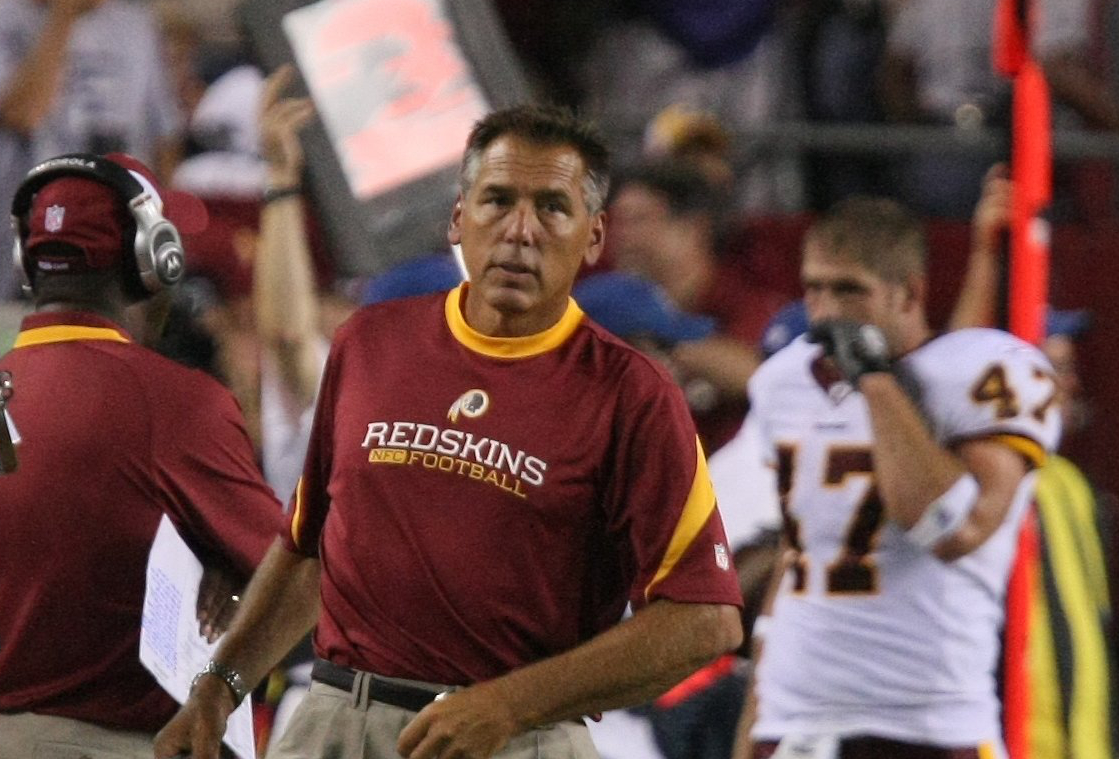Growing up in Seattle, I vividly remember watching Jim Zorn(above photo), the quarterback for the Seattle Seahawks, sling the ball around the field to a variety of recievers, including one of my favorites, Steve Largent. Little did I know the methods of his craft, quarterbacking in the NFL, would have such strong similarities to playing golf. Tony Dungy tells the following story in his book The Mentor Leader.
"Jim Zorn, former head coach of the Washington Redskins and long-time quarterback for the Seattle Seahawks said that he picked up a phrase during his career that helped him when the pressure was on: “Act medium.” Jim explained that in football, as in life, it’s easy to be buffeted by the ups and downs of the moment – by our emotions."
This passage makes me think of players like Jason Dufner and Jim Furyk who sometimes take some flak for not being more engaging on the golf course. I think Jim Zorn's comments would resonnate with both of these guys, most importantly it works for them. Jim goes on:
"It’s obvious that we can be shaken by negative moments. We’ve all had negative reactions to bad calls, stresses, and troubles that can cause us to be slow to respond or to make poor decisions.It can happen in good times as well. Jim said that when he was a young quarterback, he tended to dwell on the results of the first half of games. If he played well, he tended to get too high and think, I’ve done my job, and then he would rest on his laurels and not focus as well on the second half. If he played poorly, he would tend to get down on himself and not feel confident that he could play better in the second half."
Feeling one way or the other about how you are playing is normal, the real question is what does that feeling have to do with hitting the next shot? Mostly, nothing. Sure a little adrenaline from playing great or some anger from playing poorly can influence the next shot, the real art here is figuring out how to recognize these emotions, and use them to your benefit. Finally:
Over time, he learned to put things behind him emotionally – both good and bad – and to stay focused on future performance. Thus, to “act medium” came to mean staying available emotionally – neither too high nor too low, avoiding either extreme.”
If I stepped to the tee on the 6th hole after four consecutive bogeys, my mind would most likely be on those bogeys not on the tee shot I was about to hit. To get my mind back to the shot at hand I try to describe every detail of the shot I am about to hit. I'm going to aim at the blue fence post in the distance, tiny bit of wind out of the left, I'll line myself up with a divot just in front of my ball, etc. The more my mind is occupied with the details and intentions of the shot I'm about to hit, the more difficult it becomes to occupy my mind with anything else, including those bogeys.
"Act Medium", give it a shot next time you tee it up.

Tweet

Leave your comment